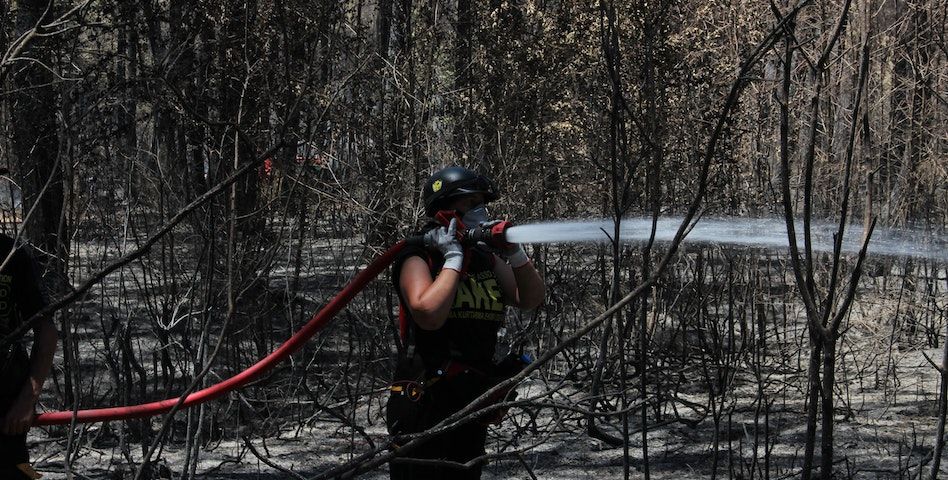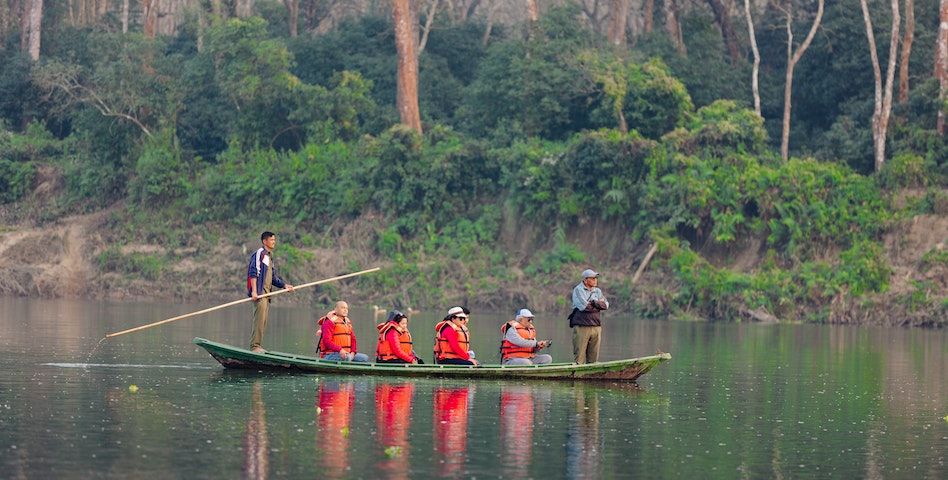The Forest Department and Wildlife plays a crucial role in the conservation and preservation of our natural resources. To ensure the effective management of our forests and wildlife, there are several job opportunities available in this field. In this article, we will explore two popular jobs in the Forest Department and Wildlife, their roles, responsibilities, eligibility, and the importance and challenges associated with them.
Wildlife Biologist
A Wildlife Biologist is responsible for studying, monitoring, and managing the wildlife populations in their natural habitats. They collect data on various factors such as population density, habitat conditions, and species interactions to gain insights into the ecological dynamics of the ecosystem. The primary goal of a Wildlife Biologist is to protect and conserve wildlife populations by identifying and mitigating any threats to their habitats.

Roles and Resposibilities
The roles and responsibilities of a Wildlife Biologist may vary depending on the employer and the specific job position. Generally, they are responsible for conducting research and fieldwork, analyzing data, developing management plans, and educating the public about conservation efforts. Some of the key tasks of a Wildlife Biologist include conducting wildlife surveys, studying animal behavior and ecology, analyzing data using statistical software, developing management plans, and assessing the effectiveness of conservation efforts.
Eligibility
To be eligible for a Wildlife Biologist position, candidates are required to have a degree in wildlife biology, ecology, or a related field. Some employers may also require additional certifications or specialized training. The candidate should also have excellent analytical and problem-solving skills, communication skills, and be physically fit to handle fieldwork in rugged terrain.
Challenges Involved
The role of a Wildlife Biologist is highly important as it contributes to the conservation and management of our natural resources. By conducting research and monitoring wildlife populations, they help in identifying and mitigating any threats to their habitats, thereby ensuring the survival of endangered species. Their work is crucial in maintaining the ecological balance of our ecosystem, which in turn supports human livelihoods.
However, the job of a Wildlife Biologist comes with several challenges.
- They often work in remote and rugged terrains, which can be physically demanding and dangerous.
- They may also face hostility from local communities, who may view conservation efforts as a hindrance to their livelihoods.
- Moreover, wildlife populations are highly sensitive to environmental changes and may face several threats such as habitat loss, climate change, and poaching.
- As a result, Wildlife Biologists must constantly adapt to new challenges and find innovative solutions to protect our natural resources.

Forest Range Officer
A Forest Range Officer is responsible for managing and protecting forest areas and ensuring compliance with forest laws and regulations. They are responsible for managing forest resources sustainably, preventing illegal logging and poaching, and ensuring public safety within the forest areas. The primary goal of a Forest Range Officer is to balance conservation and sustainable use of forest resources, ensuring that future generations can also benefit from them.
Roles and Responsibilities of Forest Range Officer
The roles and responsibilities of a Forest Range Officer may vary depending on the employer and the specific job position. Generally, they are responsible for conducting patrols, supervising staff, managing budgets, ensuring compliance with forest laws, and developing management plans. Some of the key tasks of a Forest Range Officer include conducting surveys to identify forest resources, enforcing forest laws, managing fire hazards, conducting outreach programs, and monitoring forest health.
Requirements
To be eligible for a Forest Range Officer position, candidates are required to have a degree in forestry, wildlife management, or a related field. Some employers may also require additional certifications or specialized training. The candidate should also have excellent communication skills, physical fitness, and the ability to work under pressure.
Challenges To Be Faced
The role of a Forest Range Officer is highly important as they play a vital role in protecting and conserving forest resources. By enforcing forest laws and regulations, they prevent illegal logging and poaching, which helps in maintaining the ecological balance of our ecosystem. Forest Range Officers also help in managing forest resources sustainably, ensuring that they are used in a manner that benefits both present and future generations. They also play a key role in educating the public about the importance of forest conservation and the need to protect our natural resources.
However, the job of a Forest Range Officer also comes with several challenges.
- They often work in remote and rugged terrain, which can be physically demanding and dangerous.
- They may also face threats from poachers and illegal loggers, who may resort to violence to protect their illegal activities.
- Moreover, forests are highly sensitive to environmental changes and may face several threats such as forest fires, invasive species, and climate change.
- As a result, Forest Range Officers must constantly adapt to new challenges and find innovative solutions to protect our natural resources.
Conclusion
The Forest Department and Wildlife offer several job opportunities for individuals interested in the conservation and management of our natural resources. Wildlife Biologists and Forest Range Officers are two popular job positions that play a vital role in protecting and conserving our forests and wildlife. While the roles and responsibilities of these positions may vary depending on the employer and specific job position, they both require individuals with a deep understanding of ecology and conservation, excellent communication skills, and the ability to work in challenging environments.

Despite the challenges associated with these jobs, they are highly important in maintaining the ecological balance of our ecosystem and ensuring that our natural resources are protected for present and future generations. Therefore, individuals interested in a career in the Forest Department and Wildlife must be passionate about conservation, committed to protecting our natural resources, and willing to adapt to new challenges to succeed in this field.


